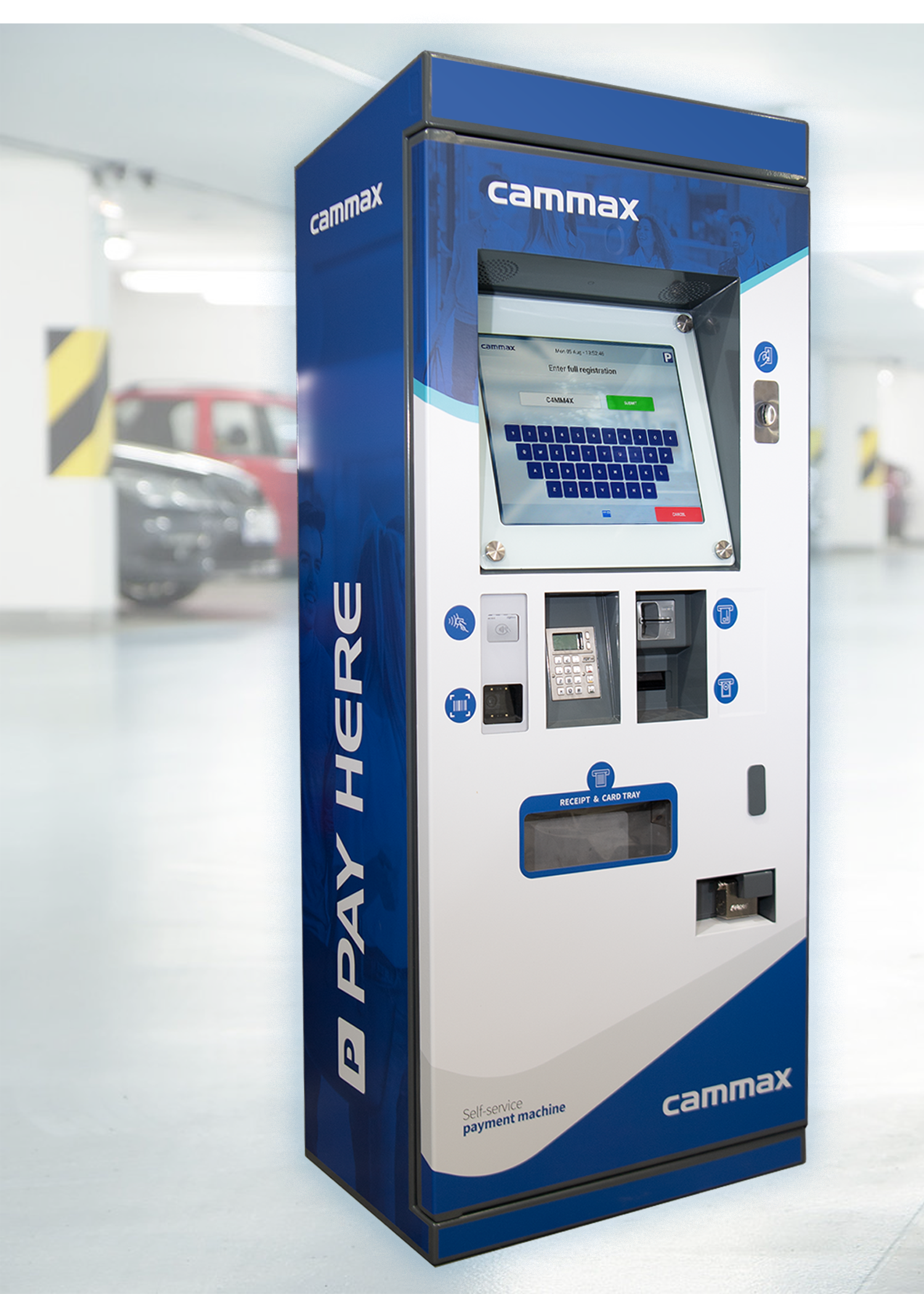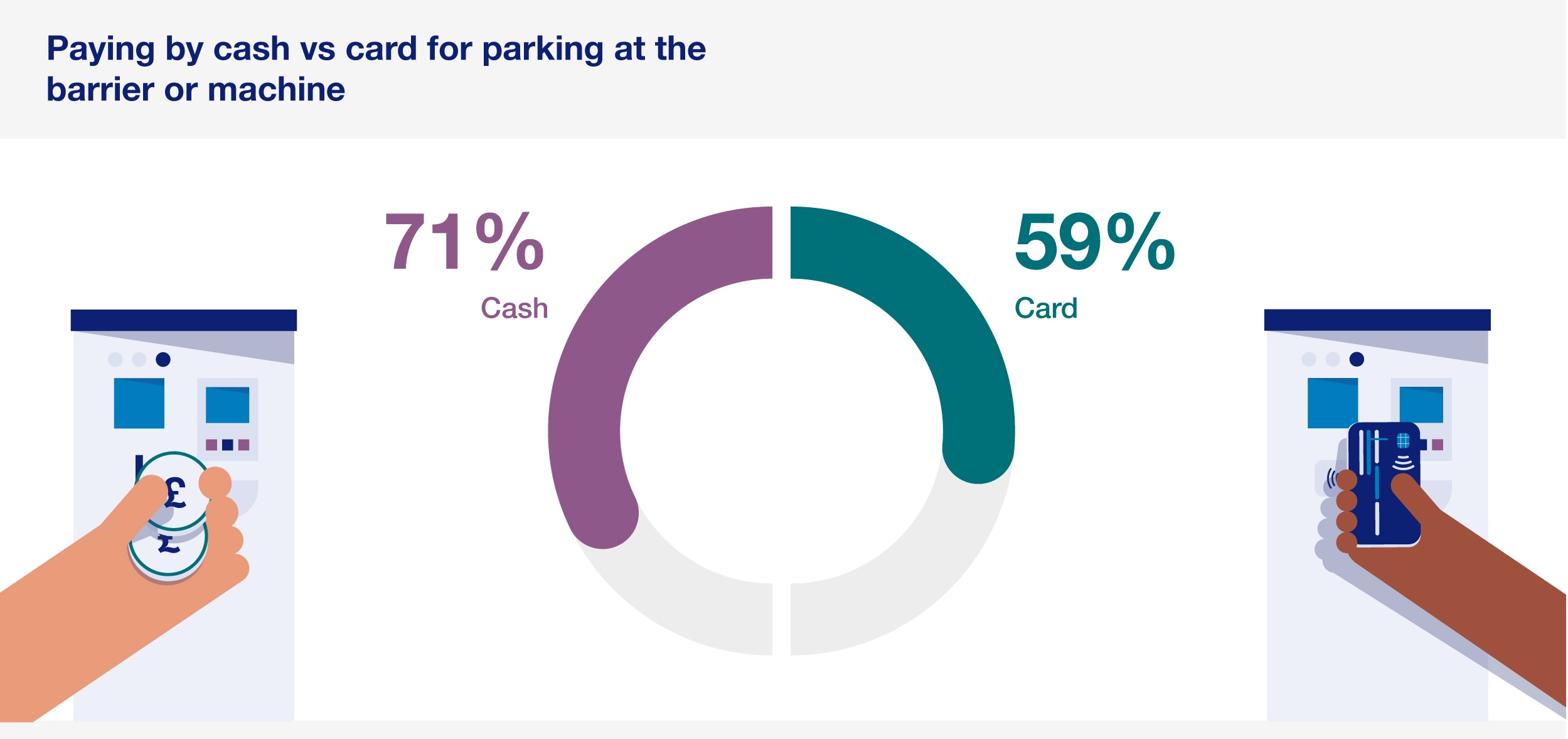
According to a recent survey nearly three quarters of motorists prefer to pay with cash when using a parking payment machine.
The research, conducted by global payments provider Elavon, aimed to uncover the UK’s parking payment preferences following an unprecedented few years for car park operators and other parking industry stakeholders.
The growth in home working, regulatory changes promoting ‘cleaner mobility’ and competitive pressures such as flexible car hire have all prompted wide-spread changes in parking payment strategies and a shift towards ‘Smart parking’.
The survey, which quizzed over 1,000 people aged 16-75 revealed that over half (53%) indicated they prefer to pay at a machine or at the barrier. Meanwhile just over a quarter (28%) prefer to use a smart device, whether that be a smartphone or smart watch. Smart device payments could be through an app, sending a text or making a call to pay by card.
Of those who prefer to pay at a parking payment machine, more than half (59%) use a card while nearly three quarters (71%) use cash (the survey notes that this combined figure does not equate to 100% because respondents were allowed to select more than one answer).
These findings also echo the outcomes of similar surveys that have sought to ascertain UK driver’s parking payment preferences. In March a British Parking Association (BPA) study found that 61% of motorists still prefer to pay for their parking with coins or notes. A poll commissioned by the Daily Express also concluded that 99% of people believe that car parks should still accept cash for parking payments.
Commenting on the revelation that cash still appears to be king for motorists, Patrick Doherty, Head of Emerging Markets at Elavon said:
“In a world where everything seems to be going digital, the popularity of cash use may seem like a surprise but for unattended car park machines and barriers connectivity to cellular networks needed to securely transmit digital payment information can still be a widespread frustration”.
“Built-up areas can be just as problematic as rural ones, with erratic coverage in our towns and cities. As a result, cash may be a preferred option by drivers simply because, in many instances, it’s the only option the car park owners can reliably offer”. He added.

Graphic by Elavon. Credit: https://www.elavon.co.uk/insights/news/payments-insight-parking-preferences.html
The survey was commissioned amidst a backdrop of growing frustration at moves by some car park operators and local authorities to completely remove the option for motorists to pay for their parking with coins or notes.
Earlier this year some motorists reacted angrily when Southend Council announced plans that would see dozens of car parks and thousands of parking bays become completely cashless.
Similarly, drivers in Kent were outraged when the local council revealed they were set to replace cash-enabled parking payment machines in favour of a ‘pay by phone’ service.
At the heart of critic’s concerns is that any move to remove cash parking payment facilities disproportionately affects those who don’t own a smartphone, including elderly and vulnerable motorists.
Caroline Abrahams, Charity Director at Age UK, said: “If you don’t have a smartphone or a credit card, the more modern parking machines that don’t take cash are no use to you at all, making it even harder to find somewhere to park than it often already is. Parking near to services or appointment venues can be all the more important for older people with mobility issues.”
She added: “More and more venues and services are declining cash and threatening to disenfranchise millions of older people as a result. Operators may save some money by not processing cash, but it’s the digitally excluded in their communities, many of them older people, who are left paying the price.”
Cashless critics also argue that ‘pay by phone’ and app-based parking payment methods can be extremely confusing to use, and some motorists have even been struck with fines and penalties as a result of not being able to navigate the technology.